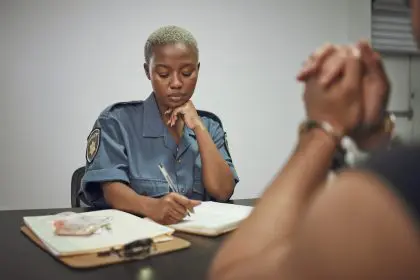Coming home from prison is a major milestone, often celebrated with family and friends. A welcome home party is a heartfelt way to mark a fresh start, but it can inadvertently lead to serious consequences. Probation conditions are often strict, and even minor missteps at a celebration can result in violations that disrupt the progress of reentry.
Understanding how certain actions or circumstances at a party can jeopardize probation is essential to protecting the individual’s freedom. This article highlights five common ways a welcome home party could unintentionally break probation and offers practical advice to celebrate responsibly.
1. Associating with restricted individuals
Probation conditions often prohibit contact with specific individuals, such as those with criminal records or known gang affiliations. A welcome home party might unintentionally include people from the individual’s past who fall under these restrictions.
Why it matters
Probation officers monitor the relationships of those under supervision to ensure they maintain a path toward rehabilitation. Being in the same space as restricted individuals can be considered a violation, even if the interaction is casual or brief.
How to avoid this
Create a guest list carefully and communicate probation conditions to those organizing the party. Politely explain that anyone who might conflict with these conditions should celebrate in a separate way to avoid complications.
2. Presence of alcohol or drugs
Many probation agreements include a sobriety clause, prohibiting the use or possession of alcohol or drugs. Even if the probationer refrains from drinking or using substances, their presence at the party can create issues.
Why it matters
Probation officers conduct unannounced visits and may find evidence of alcohol or drugs at the venue. Additionally, photos or videos shared online can provide indirect evidence of noncompliance.
How to avoid this
Host a sober event to eliminate any potential risks. Inform guests ahead of time that the celebration will be alcohol-free and encourage creative alternatives like mocktails or themed non-alcoholic beverages.
3. Choosing a prohibited location
Certain probation agreements include restrictions on visiting specific locations, such as bars, clubs, or neighborhoods associated with criminal activity. Hosting a party at a venue that falls under these prohibited categories can trigger a violation.
Why it matters
Probation conditions are designed to minimize exposure to high-risk environments. Even attending a venue unknowingly flagged by the court can lead to legal repercussions.
How to avoid this
Opt for a venue that is clearly in compliance, such as a family member’s home or a public park. When in doubt, consult the probation officer to confirm the venue is acceptable.
4. Missing curfew requirements
Probation often comes with a strict curfew that requires individuals to be home by a certain time. Parties can easily extend beyond curfew hours, putting the probationer in a difficult situation.
Why it matters
Missing curfew is one of the most avoidable violations, yet it can have serious consequences. Being late can suggest noncompliance and lead to legal penalties or extended probation terms.
How to avoid this
Plan the event to start earlier in the day, ensuring enough time for the probationer to return home before curfew. Set clear expectations with guests to wrap up the celebration on time.
5. Social media exposure
In the digital age, photos and videos from events are often shared online. While well-meaning, these posts can inadvertently document probation violations, such as the presence of restricted individuals or alcohol.
Why it matters
Probation officers and legal authorities may monitor social media activity. A single post showing a violation can be used as evidence, even if the probationer is unaware of its existence.
How to avoid this
Request that guests avoid posting about the event online. Alternatively, ask them to share content only after confirming it does not show anything that could raise concerns.
Practical tips for a safe celebration
To ensure the welcome home party remains a positive experience, consider the following:
- Communicate with the probation officer: Notify the officer about the event and seek guidance on permissible activities.
- Educate attendees: Share probation conditions with family and friends to avoid unintentional missteps.
- Limit the guest list: Keep the gathering small to maintain control and minimize risks.
- Assign a compliance monitor: Designate a trusted individual to oversee the event and address potential concerns.
Looking Forward
A welcome home party can be a meaningful way to celebrate an individual’s return to the community. However, it’s crucial to plan with care to avoid any actions that could jeopardize probation. By understanding the risks and taking proactive measures, you can create a safe and supportive environment that honors the journey while protecting the probationer’s freedom.
Celebrations should empower individuals to move forward, not pull them back. With thoughtful planning, the party can remain a joyful and compliant milestone on the road to a successful reentry.
This story was created using AI technology.







